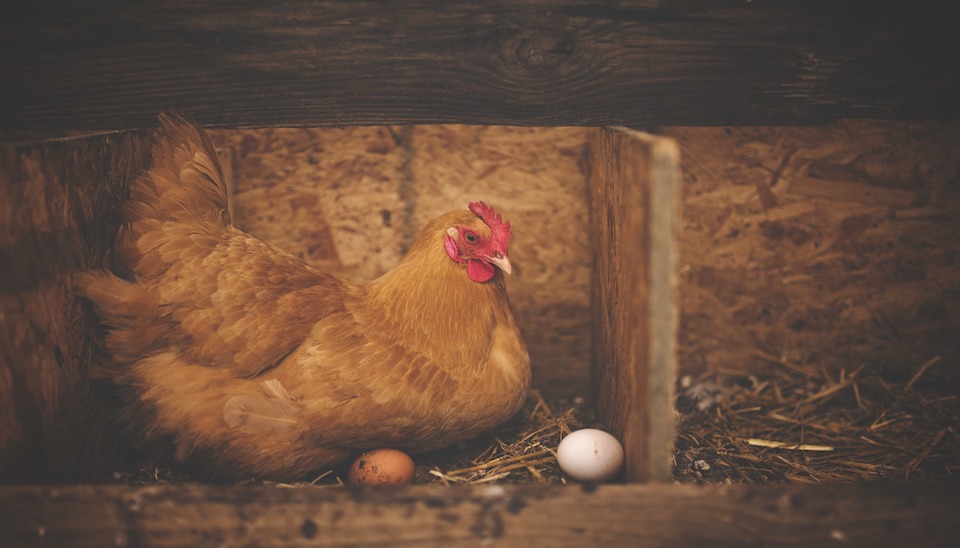7 ways to increase egg production in older hens
How to get more eggs from older hens
We often get asked ‘Why won’t my hen lay?’ There are a lot of factors that can cause decreased egg production.
It is common for hens to lay less as they age, but there are ways to combat this.
But if you don’t think age is the issue, check out our blog for more advice on chickens that aren’t laying eggs.
When do chickens stop laying eggs?
The oldest chicken to lay an egg is believed to be 17-year-old Victoria, an elderly Black Rock hen. But of course, this is quite unusual.
Commercial laying operations cull their birds at around 2 years of age because egg production decreases significantly after this.
However, this isn’t the case for all birds.
In chickens that start out producing ‘an egg a day’ egg production tends to decrease noticeably after a couple of years.
On the other hand, some heritage breeds can lay consistently for up to 4 years, albeit at a slightly lower rate, before a noticeable decrease in egg production.
Why don’t old hens lay as many eggs?
Egg production naturally decreases as chickens age. But poor nutrition and stress are the most common cause of lower egg production in older hens.
Producing eggs requires a lot of nutrients and takes a toll on the body. Therefore, it is no surprise that birds producing an egg a day stop laying earlier than those that produce 4-5 eggs a week.
Chickens with poor nutrition or stressful living conditions will stop laying at a younger age than birds of the same breed that live in free-range conditions and have access to high-quality feed.
Studies show that older hens have poorer digestive function, including lower nutrient retention and absorption. This affects laying.
Therefore, improving nutrition and supporting digestion can help increase egg production in older hens.
7 easy ways to get more eggs from old hens
1. Calcium supplements
Older hens are often deficient in calcium. One study determined that a minimum of 3.5 % calcium in the diet is required by late period brown laying hens.
If your hens are laying weak-shelled eggs, a Calcium Supplement can help ensure they are getting the calcium that they need.
2. Probiotics
There are a range of studies looking at the effects of probiotics. Supplementation with probiotics seems to improve digestive function and cause older hens to lay more eggs.
Although various probiotic species were used in different studies, you can hedge your bets with a multi-strain Avian-Specific Probiotic.
3. Chelated Minerals
Chelated or proteinated minerals are more bioavailable and easier to absorb. One study found that low doses of proteinated trace minerals improved egg production and egg-shell quality in older hens, and was more effective than non-chelated supplements.
Dine a Chook Mega Mineral contains chelated sea minerals and is designed for use as a daily, low-level supplement for chickens.
4. Dried Peppermint
The addition of dried peppermint leaves (Mentha peperita L.)to the feed of older hens increased egg production, overall egg weight and eggshell thickness.
The study recommended 20 g of dried peppermint leaves per kilogram of feed. Now’s the perfect time to plant some peppermint for drying, if you want to give this supplement the DIY treatment!
5. Fresh Lemon
One study found that supplementing the diet with fresh lemon (20-40g/kg) enhanced egg production.
6. Moringa Leaves
Another study looked at the inclusion of 3-9 g of Moringa Oleifera leaves per kilo of feed. The leaves were linked to increased egg production and eggshell quality. Additionally, the study found that moringa decreased the amount of ammonia excreted, making the coop less stinky!
Moringa is a great chicken run plant and easy to grow in most regions of Australia. It is also high in protein and a good source of calcium, making it great chicken forage.
7. Baking Soda
Several studies found that diets supplemented with small amounts of baking soda improved egg production in older chickens.
About the sources of information
All of these suggestions come from scientific studies of “late-period” laying hens.
These studies are carried out on hybrid layers living in commercial-style conditions. Birds were fed a complete feed plus the supplement and all studies had at least one control group.
The “late period” laying hens used in the studies were usually between 65 and 100 weeks of age (1-2 years). It is unclear whether the hens originally came from commercial operations or not.
Except where noted, the studies showed an improvement in egg production and/or nutrient absorption linked to the supplement. Few studies showed an increase in egg quality but almost all also showed decreased mortality with supplementation.
Backyard conditions are significantly different to the conditions in these studies, but that doesn’t mean these dietary supplements won’t work for your birds. If you find a winner, let us know!
Is there something else you would like us to research? Contact us!
Happy chicken keeping!
Rachael at Dine a Chook Australia




